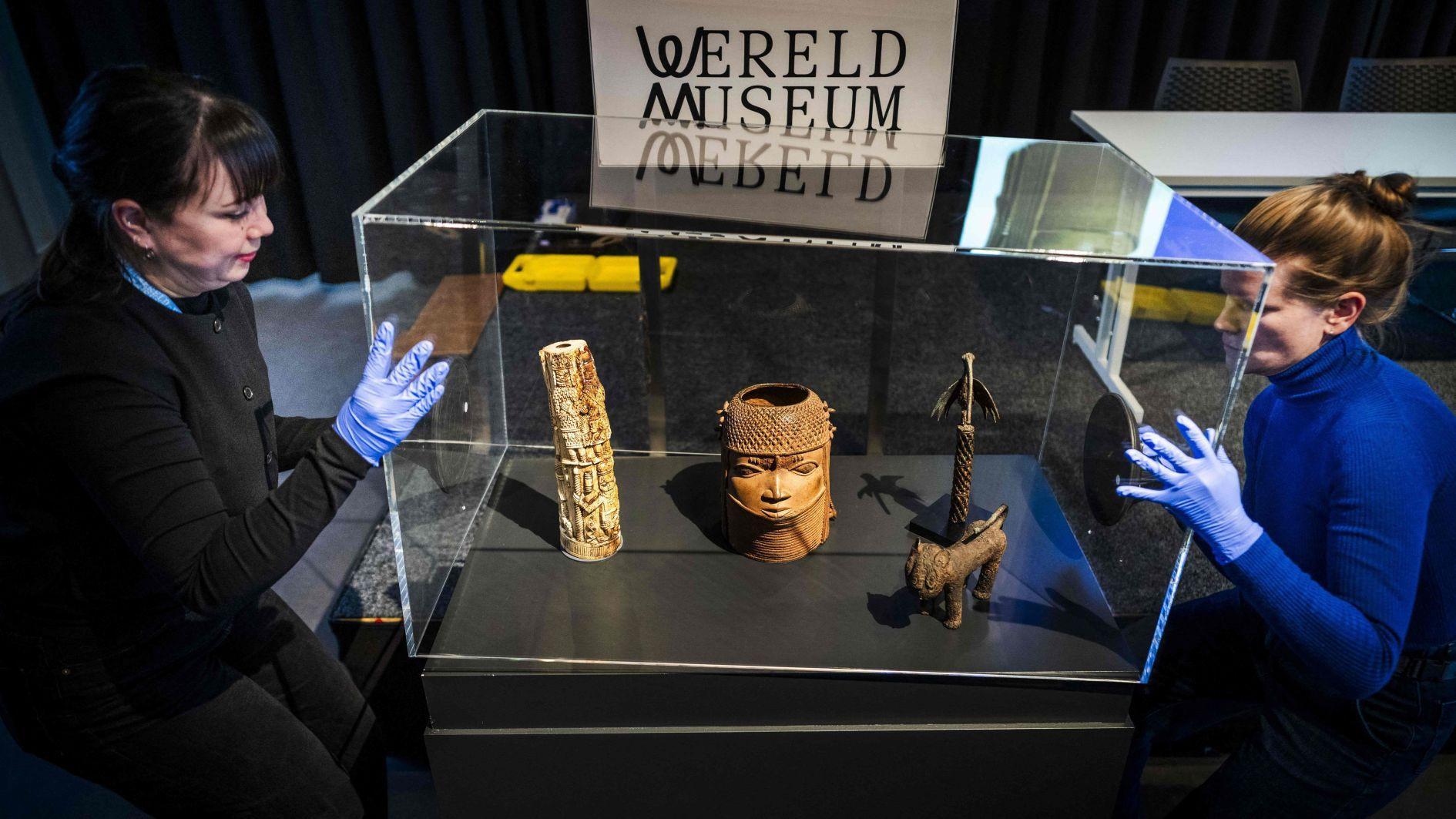
Clad in protective blue surgical gloves, a Dutch museum worker gingerly unhooks a precious decorative artefact before gently laying it down on a pillow and wrapping it in dozens of layers of special paper.
The artifact is a "Benin Bronze," a priceless cultural object looted from modern-day Nigeria more than 120 years ago, now being removed from display and returned to its rightful home.
The Wereldmuseum (World Museum) in Leiden is restoring 113 of the ancient sculptures, the latest single return, as pressure mounts on Western governments and institutions to hand back the spoils of colonial oppression.
"These don't belong here. They were violently taken, so they need to go back," museum director Marieke van Bommel said, adding, "This is a typical example of looted art."
The story of the Benin Bronzes is one of violence and tragedy. It began when nine British officers were killed on a trade mission to the then independent kingdom of Benin, in the south of present-day Nigeria.
The British reaction was fierce. London deployed a military expedition to avenge its officers. The troops killed several thousand locals and torched Benin's capital city.
They looted the royal palace, stealing hundreds of artworks, including the Benin Bronzes.
Most of the ornate bronzes were then sold to finance the expedition, auctioned off or sold to museums across Europe and the U.S.
This was in 1897 and 128 years later, Nigeria is still negotiating the bronzes' return around the world with mixed results.
The Netherlands has agreed to return 119 bronzes in total, six more are coming from Rotterdam and Germany, has also begun handing back its loot.
However, the British Museum in London has refused to return any of its famed collection. A law passed in 1963 technically prevents the museum from giving back the treasures.
Museum director Van Bommel hopes the Dutch example will be picked up around the world.
"I think we all agree that this collection doesn't belong in European museums. We do hope that other countries will follow this example," she said.
The collection is priceless, said Van Bommel. "It's a cultural value, so we never put a price on it."